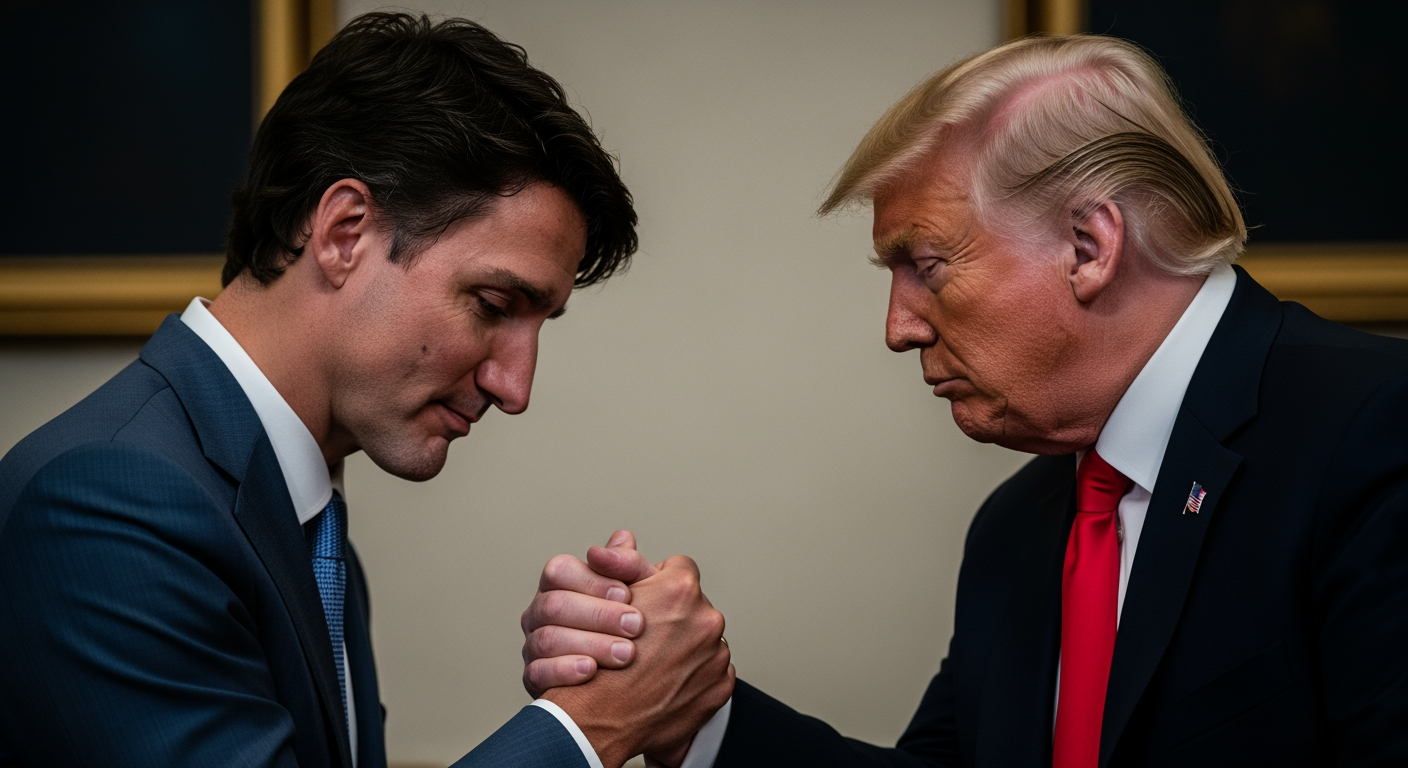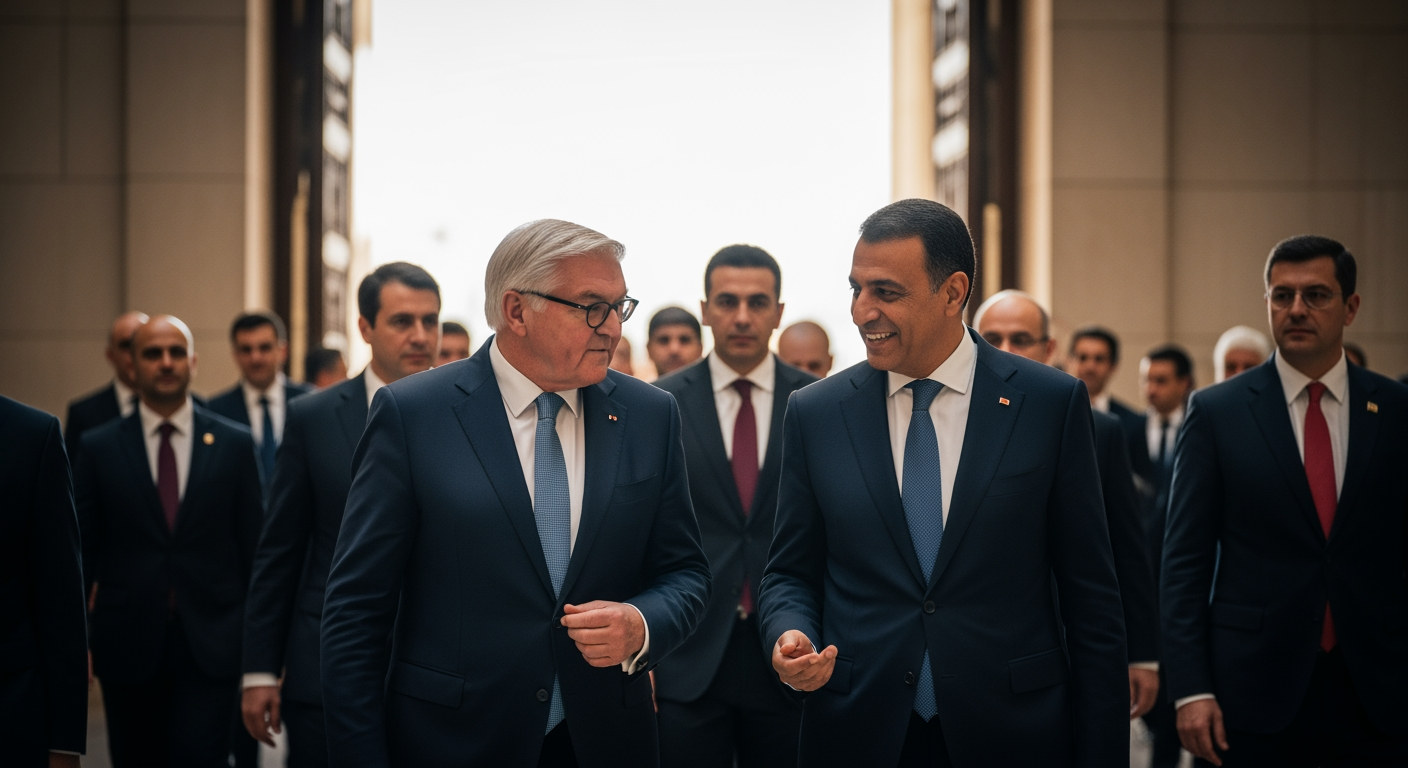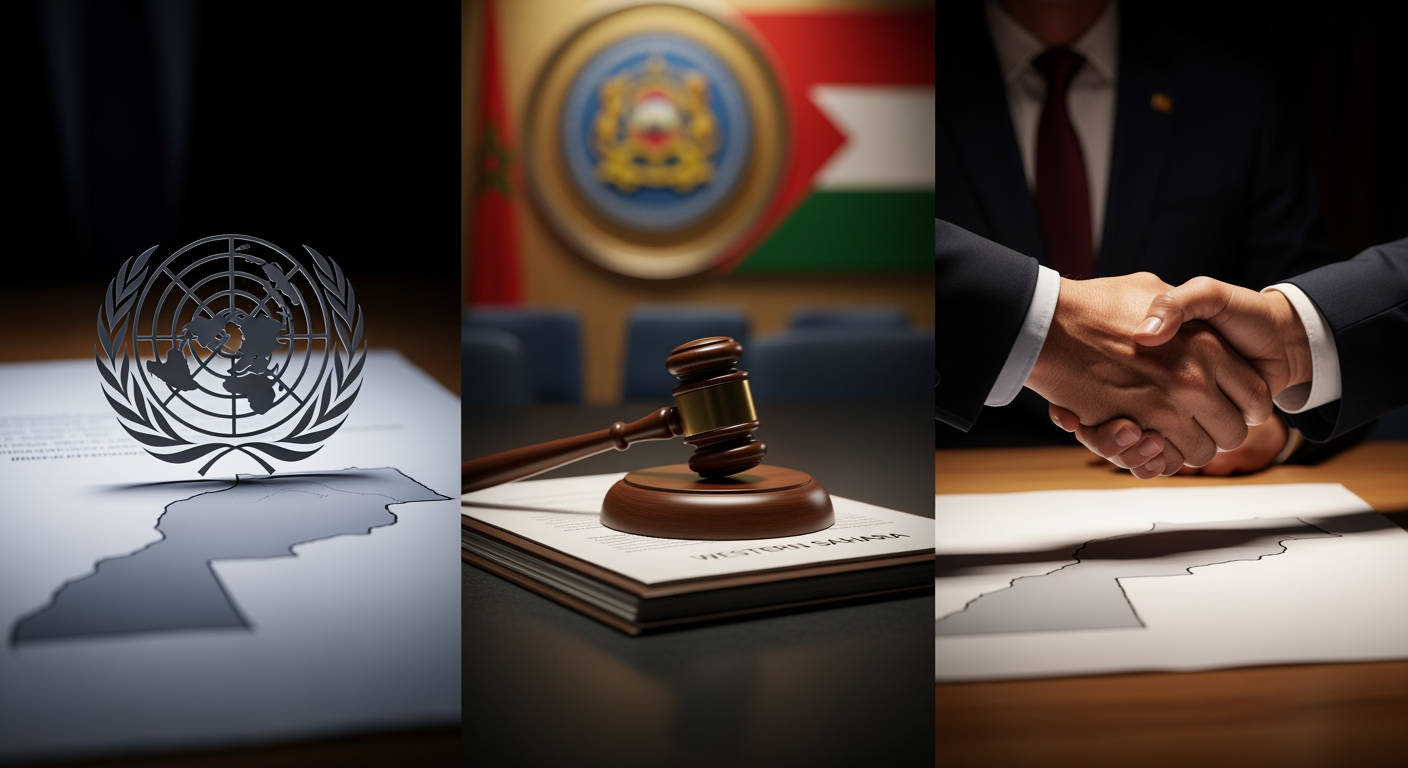Related Articles

Diplomatic Ripples: Canadian Prime Minister Apologizes to Trump Over Reagan Ad as Trade Tensions Escalate




UNITED NATIONS – In a pivotal diplomatic move, the United Nations Security Council has voted to endorse Morocco's autonomy plan for Western Sahara as the "most feasible solution" for the long-standing territorial dispute. The resolution, adopted on Friday, October 31, 2025, signals a significant shift in the international community's approach to resolving a conflict that has persisted for nearly five decades, intensifying pressure on all parties to engage in negotiations based on the Moroccan proposal. The decision, while celebrated by Rabat and its allies, has been met with strong condemnation from the Polisario Front and its primary backer, Algeria, underscoring the deep divisions that continue to plague the region.
The origins of the Western Sahara conflict trace back to 1975, following Spain's withdrawal from its former colonial territory. Morocco swiftly asserted its historical claims over the region, initiating the "Green March," a mass demonstration of Moroccan civilians, accompanied by military forces, into Western Sahara. Simultaneously, the Polisario Front, a Sahrawi independence movement formed in 1973, launched an armed struggle against both Morocco and Mauritania, seeking to establish an independent Sahrawi state. Mauritania subsequently relinquished its claims in 1979, with Morocco extending its control over the vacated territory.
A UN-brokered ceasefire was established in 1991, leading to the deployment of the United Nations Mission for the Referendum in Western Sahara (MINURSO). MINURSO's initial mandate was to organize a referendum on self-determination for the Sahrawi people, offering a choice between independence and integration with Morocco. However, disagreements over voter eligibility and other logistical issues repeatedly stalled the referendum, leaving the core question of the territory's future unresolved. After decades of relative calm, low-intensity hostilities between Morocco and the Polisario Front resumed in 2020, following the collapse of the 1991 ceasefire. This resurgence of conflict has underscored the urgent need for a durable political solution, even as diplomatic efforts have struggled to restart direct negotiations.
In 2007, Morocco formally presented its autonomy plan to the United Nations, proposing self-rule for Western Sahara under Moroccan sovereignty. Under this proposal, the region would gain significant autonomy in local governance, economy, and social matters, while Morocco would retain control over critical sovereign functions, including defense and foreign policy. Rabat maintains that this plan offers a realistic, credible, and pragmatic pathway to resolving the dispute, asserting it as the only viable solution capable of ensuring stability and prosperity for the region.
Over the past years, Morocco has garnered substantial international support for its initiative. Notably, the United States recognized Morocco's sovereignty over Western Sahara in 2020, a decision that followed Morocco's normalization of relations with Israel. This recognition has been followed by expressions of support from a growing number of influential nations, including France, Spain, Germany, and the United Kingdom, among others in Europe and the Arab world, who now view Morocco's autonomy plan as a serious and credible basis for negotiations. Following the recent Security Council vote, King Mohammed VI of Morocco hailed the resolution as "historic," signaling the opening of a "new and victorious chapter in the process of enshrining the Moroccan character of the Sahara."
The latest resolution, 2797 (2025), drafted and championed by the United States, represents the most explicit endorsement yet of Morocco's autonomy initiative by the UN Security Council. The resolution was adopted with 11 votes in favor, none against, and three abstentions from Russia, China, and Pakistan. Algeria, a non-permanent member of the Council, did not participate in the vote. In addition to recognizing Morocco's plan as the "most feasible solution" or "most credible basis" for negotiations, the resolution explicitly urges all parties to engage in serious discussions without preconditions, building on the Moroccan proposal.
Significantly, the resolution renews the mandate of MINURSO for another year, until October 31, 2026, but notably omits any direct reference to a referendum on self-determination, a cornerstone of previous UN resolutions and the Polisario Front's long-held demand. This omission underscores the Security Council's increasingly pragmatic approach to the conflict, prioritizing a negotiated political solution over the elusive referendum. The UN Secretary-General's Personal Envoy for Western Sahara, Staffan de Mistura, continues his efforts to facilitate negotiations, regularly engaging with all parties to bridge the existing gaps.
The Polisario Front has consistently rejected Morocco's autonomy plan, maintaining its unwavering demand for a self-determination referendum that includes independence as an option for the Sahrawi people. The movement, which declared the Sahrawi Arab Democratic Republic (SADR) in 1976 and operates from refugee camps in Algeria, views Morocco's proposal as an attempt to legitimize an "illegal military occupation." Following the Security Council's vote, a Polisario Front representative stated that the resolution does not imply any recognition of Moroccan sovereignty and that the leadership would assess its official position in due course. The Front has since reaffirmed its commitment to the Sahrawi people's right to self-determination and independence, emphasizing that it will not participate in any political process that seeks to undermine this right.
Algeria, a steadfast supporter of the Polisario Front, also voiced strong opposition to the resolution. Algeria's permanent representative to the UN, Amar Bendjama, stated that his country did not participate in the vote because the resolution "does not sufficiently reflect" the UN doctrine with regard to decolonization and falls short of the "legitimate aspirations of the people of Western Sahara." Algeria maintains that it is not a direct party to the conflict but rather an observer, while actively supporting the Polisario Front's position and advocating for a solution that respects the Sahrawi people's right to self-determination. The Western Sahara issue continues to be a major source of tension in the long-standing rivalry between Algeria and Morocco, impacting regional stability and cooperation.
The Security Council's endorsement of Morocco's autonomy plan marks a significant diplomatic milestone, reflecting an international consensus among many key global powers that a pragmatic, negotiated solution is essential for the future of Western Sahara. However, the deep-seated opposition from the Polisario Front and Algeria ensures that the path forward will remain challenging. While the resolution does not explicitly endorse Moroccan sovereignty, it clearly positions Rabat's autonomy proposal as the primary framework for future discussions, thereby increasing pressure on the Polisario Front and Algeria to engage constructively with this framework.
The prolonged stalemate in Western Sahara has profound humanitarian implications, particularly for the Sahrawi refugees in camps in Tindouf, Algeria, who have endured decades of displacement. The United States has been a significant humanitarian donor to these camps. The Security Council's latest resolution, while offering a clear direction for renewed negotiations, does not guarantee an immediate breakthrough. The task of translating this diplomatic momentum into a lasting peace remains with the parties themselves, requiring compromise and good faith engagement under the auspices of the UN Personal Envoy, Staffan de Mistura, to achieve a just, lasting, and mutually acceptable political solution for the people of Western Sahara.